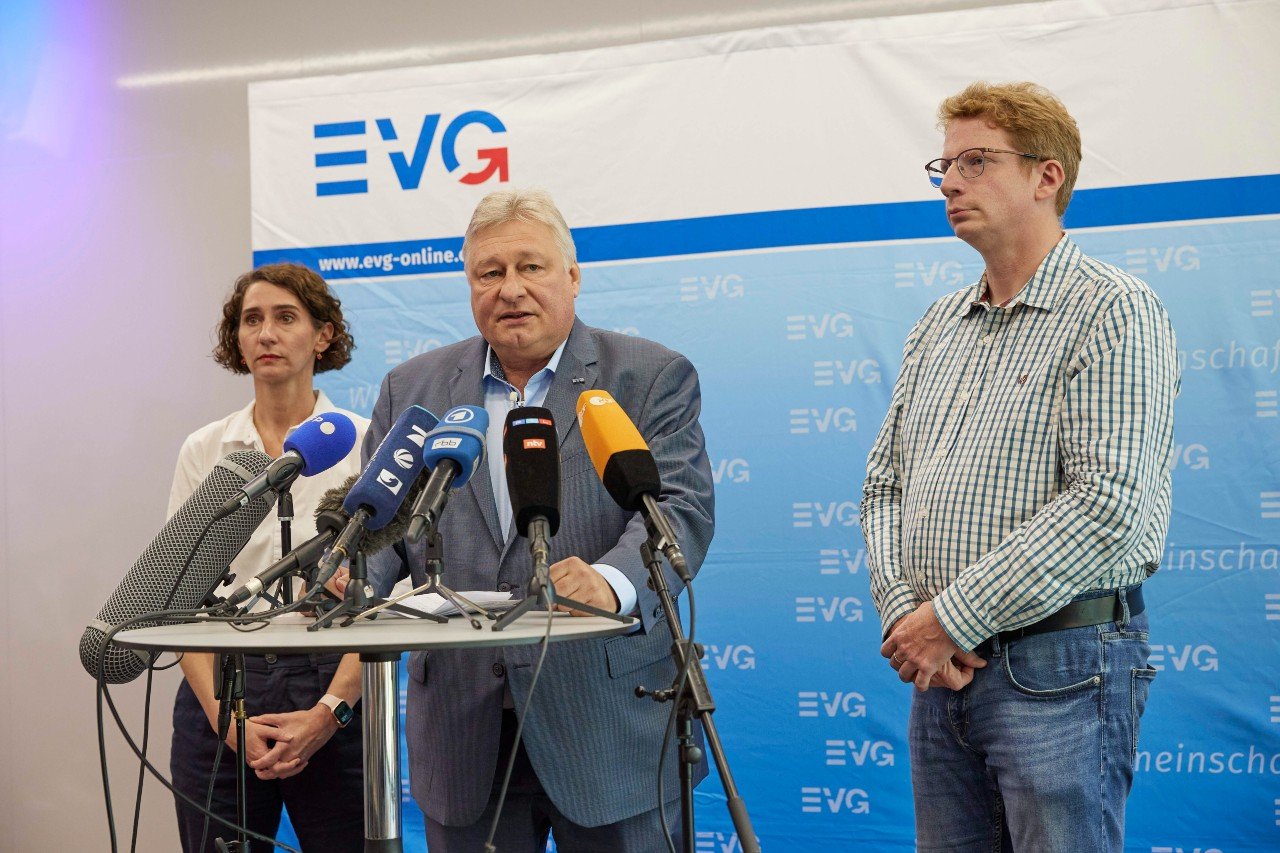“After the failure of the negotiations, we declared that we would not oppose such a procedure – and now we are keeping our word,” EVG chief negotiation Kristian Loroch announced on Thursday.
Nevertheless, he said, the union will forge ahead with a ballot to decide whether to hold prolonged rail strikes in the coming weeks.
“Our voting members at Deutsche Bahn AG will therefore vote on the outcome of the conciliation and thus also on the possibility of indefinite industrial action,” EVG said in a statement. “If the result is not convincing, indefinite strikes will be the consequence.”
According to the EVG, however, it does not intend to carry out any further warning strikes until the start of the conciliation process.
READ ALSO: German rail union to hold ballot on unlimited strikes
The arbitration process is the latest twist in an embittered pay dispute between the rail operator and Germany’s largest rail union.
On Wednesday, Deutsche Bahn had launched its bid for external mediation in order to avoid strikes that were expected to be held on Tuesday.
A day earlier, Bild had reported that a decision on future warning strikes would be taken by Thursday afternoon.
Failed talks
Last week, EVG had declared that months of pay negotiations between the two sides had failed and had announced plans to ballot its 110,000 members on the possibility of prolonged strikes.
The strike ballot is likely to take four to five weeks, it said. But officials stressed that warning strikes were still possible during this time.
Nevertheless, in recent media interviews the union had expressed its willingness for arbitration in the collective bargaining dispute.
“If the employer approaches us with a demand for arbitration, we can decide quickly,” EVG leader Martin Burkert told Bayerischer Rundfunk last week.
Such a mediation led to a breakthrough in public sector pay negotiations between services union Verdi and the local authorities back in May.
EVG has been calling for a 12 percent pay rise or at least €650 extra per month for its members over 12 months – at which time pay negotiations would be reopened.

This has been a key issue for the union after the union signed a long contract back in 2020 that prevented them from responding the steep rise in the cost of living.
Meanwhile, Deutsche Bahn has countered with a staggered 12 percent increase for lower earners, 10 percent for middle earners and eight percent for top earners – but with a duration of 27 months.
Current discussions go far beyond the issue of pay, however, with working conditions and working hours also up for negotiation.
Shortly before EVG branded the talks “a failure”, the two sides had drawn up a 140-page document that was set to be used as a future collective agreement.



 Please whitelist us to continue reading.
Please whitelist us to continue reading.
Member comments